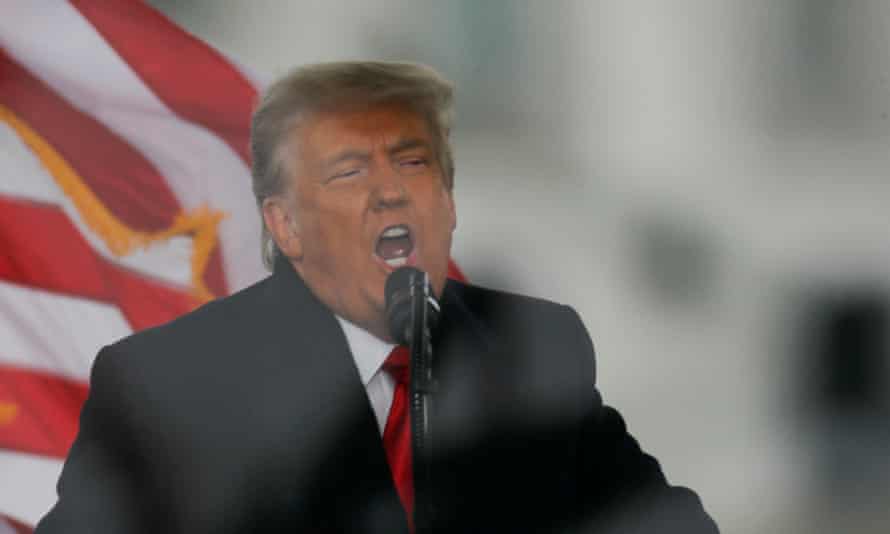Extract from The Guardian
Though the former president will likely be acquitted again, the truly dangerous course would be failing to try him

Last modified on Thu 11 Feb 2021 05.45 AEDT
The evidence is clear and compelling. The deadly events of 6 January speak for themselves – as the dramatic video which launched the proceedings against the former president on Tuesday showed. There was visceral shock around the world as events unfolded that day: as Donald Trump urged people to “fight like hell” and to march on the Capitol; as he instructed them that “When you catch someone in fraud, you are allowed to go by very different rules”; and as mass violence followed. But what was seen in real time has been compounded by the evidence since amassed.
We know more about the trauma experienced by those trapped inside the building and the injuries suffered by law enforcement officers protecting them. We know more about the intent and violence of the mob who arrived with weapons, zip ties and pipe bombs, yelling “where the fuck are they?” and “Hang Mike Pence” as they invaded. Above all, we have more evidence, in their own words, of what – or rather who – motivated them: “You are outnumbered … and we are listening to Trump – your boss,” one of the mob told police. And we know more about how Mr Trump delayed as aides and allies pressed him to call for peace.
But only six Republicans were on the right side when the Senate voted on Tuesday to proceed with Mr Trump’s second impeachment trial, and even if they vote to convict him too, 11 more members of his party would have to be swayed. It is almost certain he will not be convicted, which would allow a further vote to disqualify him from holding office again. Nor is it clear that the wider jury, the public, are likely to shift. His first impeachment, though crucial, dealt with a critical issue that nonetheless seemed remote or abstract to many voters. His second deals with a matter that could hardly feel more immediate or dramatic. A majority of US voters think he should be convicted and barred from office, according to a recent ABC News/Ipsos poll: 56%, compared to the 47% minority who believed that in his first trial. But only 15% of Republicans believe that. Joe Biden, who has promised to unify his country, is seeking to stay out of the fray, focusing on his relief plan and leaving impeachment to Congress.
The assault on the Capitol showed that an election victory was not enough to fix America’s political problem: how to restore a democracy severely wounded by Mr Trump. Nor can it be resolved by outsourcing it to a legal process within the political realm. Yet impeachment is not always restorative, but declarative: sounding an alarm, and announcing that what is happening is neither normal nor acceptable. If not now, when? If not for this, for what?
In an increasingly radicalised party, Republican senators know that their careers will probably be helped rather than hindered by backing the ex-president instead of convicting him as they should do. Mr Trump is not a man who is capable of being shamed and acquittal may embolden him and his supporters – though it would not free him from legal scrutiny: local prosecutors have opened an investigation into his attempts to reverse Georgia’s election results. Plenty of his opponents worry that the process could be counterproductive (though others think that too dismissive) and wonder if there was another way.
But
there can be no more serious matter, in a democracy, than an attempt to
overturn the people’s will through force. To choose to ignore that
would be almost as damaging as the attempt itself. This trial will not
only compel Republicans to make their standards explicit, but create a
record of their choices as well as Mr Trump’s actions, for history to
judge. Though impeachment may not help the country return to happier
times, it at least forces the acknowledgment that this is a moment of
profound crisis. Without that, there can be no hope of protecting and
restoring American democracy.
No comments:
Post a Comment